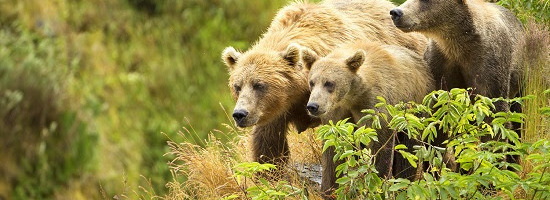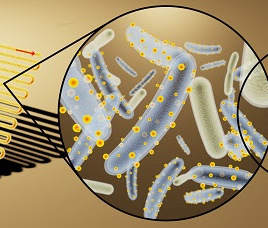
A family of Kodiak bears (Lisa Hupp/USFWS)
Red elderberry and sockeye salmon make up a large portion of a Kodiak bear’s diet; usually, the bears treat themselves to spawning salmon before the elderberry season begins. Recently, warmer springs have shifted the elderberry fruiting time to an earlier period, which coincides with the salmon spawn. Researchers observed how warmer springs affected the bears’ diets, and found that bears left the streams to forage on berries on adjacent hillsides, disrupting an ecological link that typically fertilizes terrestrial ecosystems and generates high mortality rates for salmon. These findings contribute to the ongoing exploration of the effects of climate change on specific predator-prey relationships and ecosystems as a whole.
Authors:
William W. Deacy, Jonathan B. Armstrong, William B. Leacock, Charles T. Robbins, David D. Gustine, Eric J. Ward, Joy A. Erlenbach, and Jack A. Stanford
Corresponding author:
William W. Deacy, Department of Fisheries and Wildlife, Oregon State University, Corvallis, OR, US, Email: will.deacy@gmail.com
Original paper published in PNAS on August 21, 2017.


